Joint Surgery
Arthroplasty is surgery to replace all or some of a joint. Your surgeon will replace worn-out or damaged bone and cartilage in your natural joint with a prosthetic implant. It usually takes at least a few months to recover after an arthroplasty. Your recovery time will depend on which joint needs a replacement.
What happens during an arthroplasty?
- Insert other prosthetic parts to recreate your natural tissue. They might use spacers to mimic natural cartilage.
- Insert the prosthetic joint.
- Remove damaged cartilage and bone.
- Reshape the bones around your joint to fit the new prosthetic (if they need to).
Procedure Details
What is the recovery plan?
Q & A About spine surgery?
Is it the right time to have a knee replacement?
There’s no precise formula for deciding when to have a knee replacement. The main reason to have it done is pain. If you’ve tried other options, including lifestyle strategies, anti-inflammatory medication, physical therapy, and injections, it may be time to think about surgery.
An orthopedic surgeon will perform a thorough examination and make a recommendation. You might also want to get a second opinion.
Can I avoid surgery?
Before you consider surgery, your doctor will usually encourage you to try various nonsurgical treatments, which may include:
- physical therapy
- weight loss (if appropriate)
- anti-inflammatory medication
- steroid injections
- hyaluronic (gel) injections
- alternative treatments such as acupuncture
In some cases, these solutions may help Trusted Source manage knee problems. But if the symptoms worsen and start to affect your quality of life, surgery may be the best option. Delaying or avoiding surgery for a long time can make things worse.
Ask yourself questions such as:
Have I tried everything?
Is my knee preventing me from doing the things I enjoy?
Will a knee replacement improve my quality of life?
Get more information to help you determine whether you should consider knee surgery.
What happens during surgery, and how long does it take?
The surgeon makes an incision over the front of your knee to expose the damaged area of your joint. They move your kneecap to the side and cut away the damaged cartilage and a small amount of bone.
Then, they replace the damaged tissue with new metal and plastic components. The components combine to form an artificial joint that is biologically compatible and mimics the movement of your natural knee.
Most knee replacement procedures take 1 to 2 hours to complete
Should I worry about anesthesia?
Any operation that involves anesthesia has risks, but severe complications are rare.
If you’re having a total knee replacement, your options are:
- general anesthesia
- spinal or epidural anesthesia
- a regional nerve block
An anesthesia team will decide on the most suitable options for you, but most knee replacement procedures involve a combination of the above methods.
What should I expect immediately after surgery?
If you received a general anesthetic, you might wake up feeling a bit confused and drowsy. You’ll probably wake up with your knee raised (elevated) to help with swelling.
To reduce your risk of developing a blood clot, you may need anticoagulant medication (blood thinners), foot/calf pumps, or both.
Many people have an upset stomach after surgery. This isn’t anything to worry about, and your healthcare team may provide medication to ease the discomfort.
Your doctor will also prescribe intravenous (IV) antibiotics to reduce your risk of infection. Antibiotics can help prevent infections, but it’s important to be able to recognize the signs of an infection in case one occurs after knee surgery.
What activities will I be able to do?
Most people need an assistive device (a walker, crutches, or a cane) for about 3 weeks after knee replacement surgery, although this varies significantly from person to person.
You’ll be able to do low impact exercise such as riding a stationary bike, walking, and swimming after 6–8 weeks. It’s important to make sure your incision has fully healed before swimming.
Your physical therapist can advise you on introducing new activities during this time. You should avoid running, jumping, and other high impact activities after surgery.
You can contact your orthopedic surgeon with any questions you have about your activities.
Meet The Team
We deliver a consistent and superior patient experience that begins when patients walk in the door. We not only listen; we understand where you’re coming from. Regardless of where you are in your healthcare journey, our team meets you where you are. From highly rated doctors to receptionists who know you by name and greet you with a smile
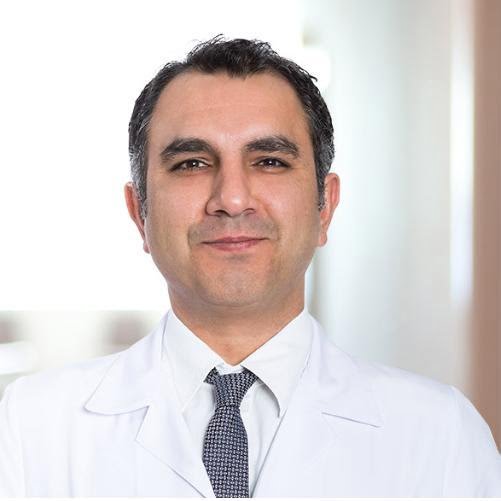
Brain and Nerve Surgery Specialist Prof. Dr. Baran Yılmaz graduated from Marmara University Faculty of Medicine. He completed his medical specialization education at Marmara University Faculty of Medicine, Department of Neurosurgery.
Yılmaz, a faculty member at Bahçeşehir University Faculty of Medicine, carries out his studies especially in the field of neurovascular diseases. Prof. Dr. Baran Yılmaz, in addition to the treatments of brain tumors, aneurysms and arteriovenous malformations; It offers treatment to its patients with the latest technological equipment for spine and spinal cord diseases. Prof. Dr. Baran Yılmaz carried out scientific studies on meningioma and cerebrovascular diseases at Yale University. Dr. has many scientific publications on brain and nerve diseases. Yılmaz also continues his academic studies.
Brain and Nerve Surgery Specialist Prof. Dr. Baran Yılmaz continues to care for his patients at Liva Hospital.
areas of interest :
- Spine surgery
- Pediatric neurosurgery
- Tumor surgery
- Mıcrosurgery
- Gamma knife
- Parkinson
- Scoliosis
- spinal cord stimulation
EDUCATİON AND EXPERTİSE
- 1998 – 2005 – MARMARA UNİVERSİTY FACULTY OF MEDİCİNE
- 1998 – 2005 – MARMARA UNİVERSİTY, FACULTY OF MEDİCİNE, DEPARTMENT OF NEUROSURGERY, ISTANBUL
(HEAD OF DEPARTMENT: PROF DR TÜRKER KILIÇ) - 2011 – 2012 – YALE SCHOOL OF MEDİCİNE, NEW HAVEN, CT, USA (DİRECTOR: MURAT GÜNEL MD. PHD., PROFESSOR OF NEUROSURGERY) CEREBROVASCULAR RESEARCH FELLOWSHİP
PROFESSİONAL MEMBERSHİPS - 2014 + TURKİSH NEUROSURGERY ASSOCİATİON
- 2017 + TURKİSH SPİNE ASSOCİATİON
- 2018 + AOSPİNE
AWARDS
31ST SCİENTİFİC CONGRESS OF THE TURKİSH NEUROSURGERY ASSOCİATİON “PROF. DR. HAMİT ZİYA GÖKALP YOUNG NEUROSURGİCAL ENCOURAGEMENT FİRST PRİZE ”, ANTALYA, 2017.
COURSES AND CERTİFİCATES
1. ORGANİZİNG COMMİTTEE MEMBER; 12. NATİONAL NEUROSCİENCE CONGRESS, BAHÇEŞEHİR UNİVERSİTY, 28-31 MAY 2014
2. ORGANİZİNG COMMİTTEE MEMBER; 11. ASNO ‘SKULL-BASE ANATOMY COURSE’, 11-14 SEPTEMBER 2014, ISTANBUL
3. TRAİNER / ORGANİZİNG COMMİTTEE MEMBER; NEUROSURGERY COURSE SERİES – 4 / PROF. DR. EVANDRO DE OLİVEİRA SKULL BASE COURSE 2, PROF. RHOTON ANATOMY LAB BAU FACULTY OF MEDİCİNE, ISTANBUL, 2015.
4. ORGANİZİNG COMMİTTEE MEMBER; INTERNATİONAL DEEP BRAİN STİMULATİON SURGERY MİCROELECTRODE RECORDİNG CADAVER COURSE, RHOTON ANATOMY LAB BAU FACULTY OF MEDİCİNE, 6-7 FEBRUARY 2015 ISTANBUL.
5. ORGANİZATİON OFFİCER; TND ISTANBUL MEETİNGS, ISTANBUL, 2015-2016
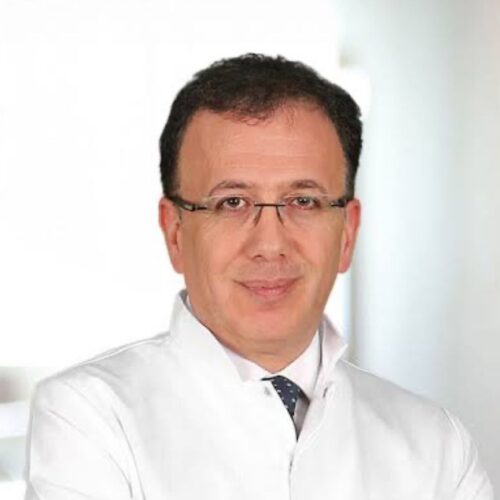
prof. Dr. Semih Ayan received almost all of his medical education and certificates from the leading institutions of America and Europe, and gained deep knowledge and international experience in many advanced specialties of urology. prof. Dr. Among the trainings and certificates Ayan has received internationally; American Medical License (USML)
Pediatric Urology Fellow (1999-2000/Boston, USA)
He is a Fellow of Urological Oncology (2014-2015/USA).
Accepting patients in the Urology medical unit, Prof. Dr. Semih Ayan completed his education at Sivas Cumhuriyet University Faculty of Medicine in 1997 and received the title of Urology Specialist. In 1999, he became a Postdoctoral Fellow in Pediatric Urology at Harvard University; He became an Associate Professor of Urology in 2003 and a Professor of Urology in 2009. In 2015, he completed his Minimally Invasive Urological Oncology (Clinical Fellow) studies at the University of Chicago and crowned his professional education and experience with international studies.
AREAS OF INTEREST :
- laparoscopic surgery
- Prostate cancer
- kidney cancer
- bladder cancer
- Stone disease surgery
- Prostate diseases
- TOT
- TVT
Education and Expertise:
1997 – Urology Specialist Cumhuriyet University
1999 – Postdoctoral Fellow in Pediatric Urology – Harvard University
2003 – Associate Professor of Urology
2009 – Professor of Urology
2015 – Minimally Invasive Urologic Oncology (Clinical Fellow) University of Chicago
Experience:
Cumhuriyet University Faculty of Medicine, Professor Doctor
1999 – Pediatric Urology Postdoctoral Fellow,
January1999 – December1999 – Harvard Medical School, Children’s Hospital, Department of Urology, Boston, USA 2014 – 2015 – Minimally Invasive Urological Oncology Clinical Fellow, University of Chicago, Dept of Surgery, Section of Urology, Chicago, USA
Courses and Certificates:
European Urology Society Board (Qualification) Certificate
2004 United States Medical License (USMLE- Full Certification)
Illinois State Medical License
Pediatric Urology Fellow (1999 – 2000 Boston, USA)
Urological Oncology Fellow (2014 – 2015 USA)
Professional Memberships:
Association of Urological Surgery
European Association of Urology
Urooncology Association
American Urological Association
United States Medical License (USMLE) Certificate
European Urology Board Certificate
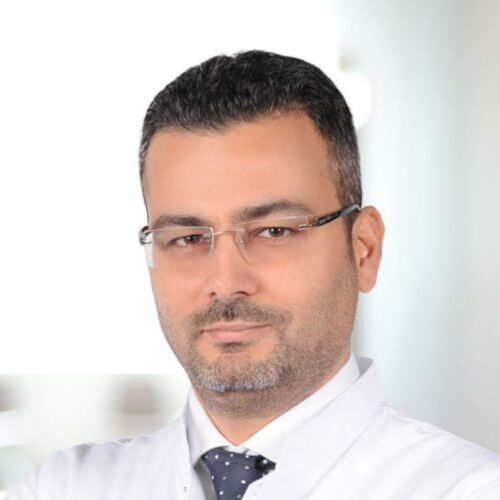
He was born in Augsburg, Germany in 1975. He completed primary education in Augsburg and in Mersin Gazipaşa Primary School in Turkey. After he completed middle and high school education in Mersin Tevfik Sırrı Gür High School, he received medical education in Çukurova Medical School between 1993 and 1999 and became medical doctor. He completed conscription in Mardin
Midyat health clinic number 3 and General Surgery Specialization in Ankara Numune Training and Research Hospital between 2000- 2005 and became General Surgeon. After he completed conscription and military service, he successfully passed the secondary expertise exam from 2008 to 2010, was graduated from Gastroenterologic Surgery Clinic of Ankara medical Specialization Training and Research Hospital and was awarded the Gastroenterologic Surgery Specialist certificate. He started to work in Antalya Training and Research Hospital as gastroenterology surgeon. He was awarded the title “Associate Professor” in 2016. He attended to Da Vinci Robotic Surgery certification program in 2016 and practiced more than 100 Robotic Tumor Surgeries in Antalya Training and Research Hospital. After performing various tumor surgeries and obesity surgeries in Antalya Training and Research Hospital from 2010 to 2018, he attended to team of Istinye University Liv Hospital in 2019.
Education:
• Mersin Tevfik Sırrı Gür High School
• Çukurova School of Medicine
Residency:
• General Surgery Clinic, Ankara Numune Training and Research Hospital Sub-specialty :
• Gastroenterologic Surgery Clinic, Ankara Turkey Medical Specialization Training and Research Hospital
Previous Employments:
• General Surgery Clinic, Ankara Numune Training and Research Hospital • General Surgery Clinic, Ankara Gölbaşı State Hospital
• General Surgery Clinic, Ankara GATA Training and Research Hospital • Gastroenterologic Surgery Clinic, Ankara Turkey Medical Specialization Training and Research Hospital
• Gastroenterologic Surgery Clinic, Antalya Training and Research Hospital
Fields of Medical Interest:
• Gastrointestinal Tumor Surgery
• Obesity and Metabolic Surgery
• Laparoscopic Surgery
• Robotic Surgery
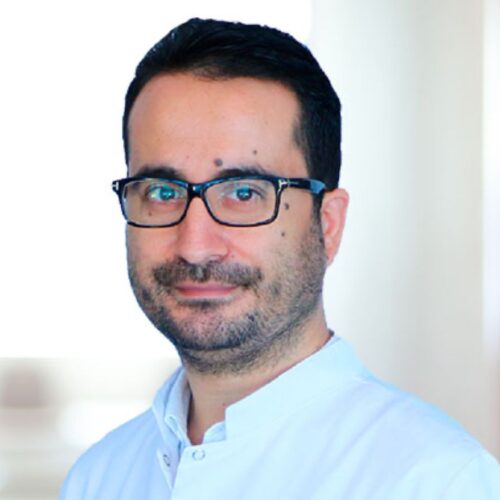
AREAS OF INTEREST
• Laparoscopic Surgery
• Prostate Cancer
• Renal Cancer
• Bladder Cancer
• Stone Disease Surgery – Flexible URS – RIRS – PNL
• Prostate Diseases – HoLEP
• Urinary Incontinence Surgeries (TOT, TVT)
• Urethral Stricture Treatment
• Microscopic Varicocele – Infertility Treatment
• Pediatric Urology
Education and Residency
• Uludağ University Faculty of Medicine 1998-2004
• İstanbul Fatih Sultan Mehmet Training and Research Hospital Urology Clinic 2004-2010
Previous Employments
• Isparta Eğirdir Mountain Commando School (Military Service) – Urology Specialist 2010- 2011
• Muş State Hospital Urology Clinic (Compulsory Service)– Urology Specialist 2011 -2012 • Medicalpark İzmir Hospital – Urology Specialist 2012 – 2012
• İzmir University Faculty of Medicine, Department of Urology – Assistant professor 2012 – 2015
• İzmir University Faculty of Medicine, Department of Urology – Associate Professor 2015- 2016
• Medicalpark İzmir Hospital – Associate Professor 2016-2017
• İzmir Ekol Hospital – Associate Professor 2017-2019
• İzmir Sada Hospital -Kordon İnternational – Associate Professor 2019-2020
Membership
• European Association of Urology (EAU)
• Endourology Society
• Turkish Urology Association
• Endourology Association
• Turkish Andrology Association
• TTB- Istanbul Medical Chamber
• Turkish Pediatric Urology Association.
Courses and Certificates
• The Sixth Applied Urological Laparoscopic Surgery Course and Symposium 2008 • Ürolojik Laparoskopik ve Robotik Cerrahi Eğitimi Bakırköy Sadi Konuk Eğitim ve Araştırma Hastanesi 2010
• The Pre-Congress Live Surgery Course Laparoscopic Surgery 2015
• Radiology Course 2016
• Retrograde Intrarenal Surgery Course 2016
• Kurs Androloji: Kadın Cinsel Fonksiyon Bozukluğunda Güncel Tanımlama ve Risk Faktörleri 2016
• Türk Üroloji Akademisi Androlojik Tetkikler Güncelleme Kursu 2016 • Certificate of Investigator Safety Training 2016
• “Metastatik Hormona Duyarlı Prostat Kanserli (mHSPC) Gönüllülerde Androjen Deprivasyon Tedavisi (ADT) Karşısında Apalutamid ile ADT Kombinasyon Tedavisinin Araştırıldığı Randomize, Plasebo Kontrollü, Çift Kör Faz 3 Çalışma, 56021927PCR3002″Diğer (Uluslararası), Arastırmacı, 21/02/2016
• “Yüksek Riskli Lokalize veya Lokal Olarak ilerlemiş Prostat Kanseri Olup Primer Radyasyon Terapisi ile Tedavi Almakta Olan Hastalarda JNJ-56021927’nin Araştırılıdığı Randomize, Çift Kör, Plasebo Kontrollü Faz 3 Çalışma, ATLAS Çalısması protokol: 56021927PCR3003 ” Diger (Uluslararası), Basım Tarihi : 26/04/2017 22:30:47 Sayfa: 5 Arastırmacı, , 11/07/2016 • “Tedavi Edilmemiş Lokal İleri Veya Metastatik Ürotelyal Karsinomlu Hastalarda Monoterapi Olarak Veya Platin Bazlı Kemoterapi İle Kombinasyon Halinde Atezolizumab (Antipd-L1 Antikoru)ın Araştırıldığı Faz III, Çok Merkezli, Randomize, Plasebo Kontrollü Çalışma” WO30070″, Diger (Uluslararası), Arastırmacı, , 01/12/2016
• “İleri evre veya Metastatik Ürotelyal Karsinomu olan Gönüllülerde Kemoterapiye karşı Pembrolizumabın Platin Bazlı Kombinasyon Terapisi ie Birlikte veya Tek Başına Karşılaştırıldığı Faz 3, Randomize, Kontrollü Klinik Çalışma, MK3475-361” KEYNOTE-361, Diger (Uluslararası), Arastırmacı, , 05/04/2017
• GCP Training Certificate 2017
• Holep Certificate Vivantes AVK Auguste-Viktoria-Hospital 2017
• Training Certificate & Authorized User ED 1000 Treatment Medispec 2018
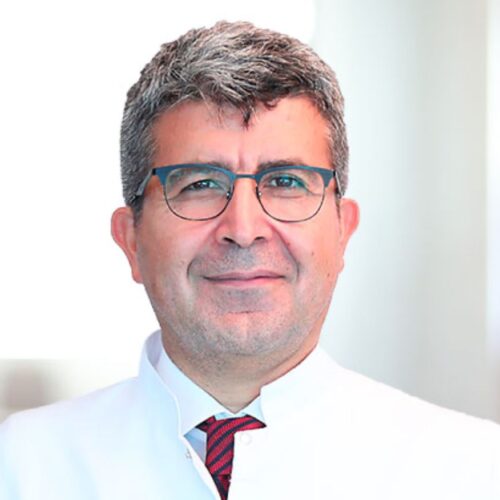
❖ WHO IS PROF.DR.MUSTAFA BİLGE ERDOĞAN :
Mustafa Bilge Erdogan was born on 06.09.1970. He is married and has two children. He received his primary, secondary and high school education in Ankara. He graduated from Ankara University Faculty of Medicine in 1994. Between 1994-1996, Ankara Dr. M.U. He worked as a Practitioner in the Emergency Department of the Emergency Aid and Traumatology Hospital. After completing his specialization in Gazi University Faculty of Medicine, Cardiovascular Surgery USA in 2003, he worked in Gaziantep Sani Konukoğlu Hospital Cardiovascular Surgery Clinic until 2007. He established the Department of Cardiovascular Surgery at Gaziantep Medical park hospital in 2007 and continued to work. During this period, he was interested in coronary bypass, valve surgery, aortic surgery in adult cardiovascular surgery. In addition, he continued to operate on peripheral arterial disease and venous diseases (varicose). In 2016, Bahçeşehir University Faculty of Medicine Cardiovascular Surgery Department Asst. He started as an Associate Professor and received the title of Associate Professor in the same year. He continued his academic duty at Bahçeşehir University Faculty of Medicine until June 2020. Later, he started to work as a Cardiovascular Surgery Specialist at ISU Bahçeşehir Liv Hospital in July 2020 and still continues to work in the same hospital. Mustafa Bilge Erdoğan, who received the title of Professor in 2021, also works as a lecturer at Istinye University Faculty of Medicine.
Research Areas: Coronary Artery Diseases, coronary bypass, Minimally Invasive Heart Surgery, Peripheral Artery Disease, Heart Valve Diseases, minimally invasive valve surgery, vein diseases, Aortic Endovascular Interventions, Aortic Endovascular Interventions, Aortic Surgery
❖ AREAS OF INTEREST :
⮚ coronary bypass
⮚ heart valve surgery
⮚ Aortic surgery
⮚ Aortic Endovascular Interventions
⮚ vein diseases
⮚ Carotid
⮚ Peripheral arterial interventions
⮚ Varicose veins treatment
⮚ Coronary Artery Diseases
⮚ Minimally Invasive Heart Surgery
⮚ minimally invasive valve surgery
❖ EDUCATION AND EXPERTISE :
⮚ Ankara University Faculty of Medicine
⮚ Gazi University, Cardiovascular Surgery – Specialization
❖ EXPERIENCE :
⮚ Gaziantep SANKO University Hospital
⮚ Gaziantep Medical Park Hospital
⮚ Bahçeşehir University Faculty of Medicine
❖ MEMBERSHIPS :
⮚ member of Turkish Cardiovascular Surgery Association
⮚ European Society for Vascular Surgery
⮚ Vascular Surgery Association
⮚ Trauma and Emergency Surgery Association
⮚ Phlebology Association.
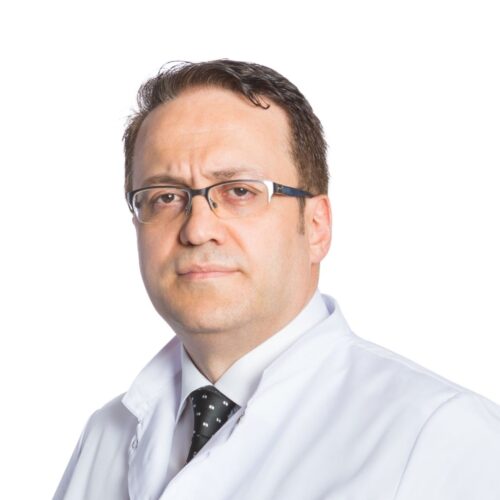
AREAS OF INTEREST:
- ECHOCARDİOGRAPHY (TRANSTHORACİC AND TRANSESOPHAGEAL)
- EECP
- DİAGNOSTİC CORONARY ANGİOGRAPHY (FEMORAL AND RADİAL)
- CARDİAC CATHETERİZATİON AND HEMODYNAMİC EXAMİNATİON
PERCUTANEOUS CORONARY İNTERVENTİONS (BALLOON ANGİOPLASTY AND STENT İMPLANTATİON) - INTRACORONARY HEMODYNAMİC STUDY
- IVUS
- ELECTROPHYSİOLOGY STUDY
- RADİOFREQUENCY CATHETER ABLATİON
- CRYO-ABLATİON
- PERMANENT PACEMAKER İMPLANTATİON
- ICD İMPLANTATİON
CRT İMPLANTATİON - PERCUTANEOUS ASD AND VSD CLOSURE
- PERCUTANEOUS MİTRAL AND PULMONARY BALLOON
- VALVULOPLASTY TRANSAORTİC VALVE İMPLANTATİON (TAVI)
EVAR, TEVAR - PERİPHERAL VASCULAR İNTERVENTİONS İN THE LOWER AND UPPER EXTREMİTİES RENAL ARTERİAL İNTERVENTİON
- CAROTİD ARTERY BALLOON AND STENT İMPLANTATİON
- RENAL ARTERİAL DENERVATİON
EDUCATİON
• ONDOKUZMAYİS HİGH SCHOOL, SAMSUN
• 1990-1997, SCHOOL OF MEDİCİNE (ENGLİSH), MARMARA UNİVERSİTY, ISTANBUL • CARDİOLOGY RESİDENCY EDUCATİON: 1998-2003, CARDİOLOGY DEPARTMENT, YUKSEK IHTİSAS TEACHİNG AND RESEARCH HOSPİTAL , ANKARA
• ELECTROPHYSİOLOGİCAL STUDY AND RADİOFREQUENCY CATHETER ABLATİON TRAİNİNG: 2004-2005 DEPARTMENT OF CARDİOLOGY, GÜLHANE MİLİTARY MEDİCAL ACADEMY ANKARA
• ELECTROPHYSİOLOGİCAL STUDY AND RADİOFREQUENCY CATHETER ABLATİON TRAİNİNG: MARCH, 2007, RHYTHMOLOGY DİVİSİON, CARDİOLOGY DEPARTMENT, ZURİCH UNİVERSİTY, SWİTZERLAND
EXPERİENCES
• CARDİOLOGİST: 2003-2004, CARDİOLOGY CLİNİC, YÜKSEK İHTİSAS TEACHİNG AND RESEARCH HOSPİTAL, ANKARA, TURKEY
• 2004-2006, ASSİSTANT PROFESSOR, DEPARTMENT OF CARDİOLOGY, SCHOOL OF MEDİCİNE, İNÖNÜ UNİVERSİTY, MALATYA
• ASSOC. PROF.: 2006-2008, DEPARTMENT OF CARDİOLOGY, SCHOOL OF MEDİCİNE, İNÖNÜ UNİVERSİTY, MALATYA
• 2008-2010, CARDİOLOGY CLİNİC, MEDİCALPARK GAZİANTEP HOSPİTAL, GAZİANTEP
• 2010-2011, CARDİOLOGY CLİNİC, GÖZDE HOSPİTAL, GÖZDE HEALTH GROUP, MALATYA • 2012-2016, CARDİOLOGY CLİNİC, MEDİCALPARK GAZİANTEP HOSPİTAL, GAZİANTEP • 2016, CARDİOLOGY CLİNİC, MEDİCALPARK SAMSUN HOSPİTAL, SAMSUN • PROFESSOR: 2014-TO DATE, DEPARTMENT OF CARDİOLOGY, SCHOOL OF MEDİCİNE, BAHÇEŞEHİR UNİVERSİTY
• DECEMBER 2016 – TO DATE, CARDİOLOGY CLİNİC, ISTİNYE UNİVERSİTY, ISTANBUL –
Don’t forget
” life is valuable again “
Liva Hospital
